CHICAGO, ILLINOIS – MARCH 11: Iggy Pop performs at The Salt Shed on March 11, 2023 in Chicago, … [+]
Getty Images
It isn’t easy in 2024, especially after the COVID lockdown, to be an independent entity in the live music business, be it promoter, venue or anything else. But Craig Golden and Bruce Finkelman, the business partners behind Chicago’s 16 on Center have found a successful and ingenious model.
The company owns six venues, including Space, Thalia Hall and The Salt Shed, ranging in size from a 350-person capacity to 5,500. So, 16 on Center have been able to build their own artist development model, starting with bands at the very beginning of their careers and maintaining a relationship as the band grows. So, they can do the first Alabama Shakes or Gary Clark Jr. gigs in Chicago and be there two or five years later when an artist blows up to bigger venues.
“What sets 16 On Center apart from other venue collectives is our hands-on approach to every aspect of the creation of the venues— we design, renovate (historic buildings), and curate every detail of our spaces in such a way to present shows like we would like to see them as a customer,” Golden says, calling the pair “bar owners.”
What also sets them apart is they are clearly music fans, citing several 2025 shows as favorites. Among those are Jack White at Salt Shed, April 10 and 11; Regina Spektor at Thalia Hall, March 2,3, and 4; Denzel Curry at Salt Shed, April 25; Michael Rother at Empty Bottle, March 27, and Adrian Young at Empty Bottle, March 12 and 13.
As devout music fans the pair are a lot of fun to talk to, geeking out on their history with The Flaming Lips, Bon Iver and more. I spoke with the inspiring duo about the company.
Steve Baltin: You guys run how many venues there in total?

Best High-Yield Savings Accounts Of 2024

Best 5% Interest Savings Accounts of 2024
Craig Golden: We have six venues.
Baltin: Tell me the sizes of each of the six venues.
Golden: We kind of go from about 350, 450, 600, 900, 3,200 and 5 ,500. Plus we do outdoor things and we do a lot of outdoor events. That’s what my frozen friend Bruce is talking about.
Baltin: Talk about what you look for in the artists you book and your commitment to artist development of having an artist start at 350 and eventually working their way up to headline the biggest at 5,500.
Golden: I think part of the passion we have for music has always been artist development. Bruce and I met because I had a comedy club here in Chicago that was a 300-seat comedy club. Bruce had a music venue that’s 350, 400, depends how close everybody gets. Then I had opened a music place that, really, we seated cabaret style, so it could be 220 to 350, so there are small venues. We both had smaller venues. We love the intimate nature of that kind of energy in a small room. For emerging artists, the talent buyers and ourselves are interested in finding people that are great. Bruce will tell you some of his stories. Jake Samuels, who’s our talent buyer at Space, when I met him was a younger man than he is now. I remember him saying like, “Hey, I just read about this band out of Alabama called the Alabama Shakes. They’ve never toured, but they want to come to Chicago, and I want to have them. I think we’re going to lose money on it. Somewhere in between that booking and them showing up to play for 230 people they got in the New York Times and blew up to be a big band. It was very exciting actually, the singer Brittany [Howard], we’ve done a bunch of shows with her afterwards, also when she was not with the Shakes. She was hyperventilating, they did like 12 songs. She was in the green room hyperventilating, and I said, “Hey, they’re looking for an encore.” She said, “We don’t have any more songs.” And I said, “Well, play the first two again. They won’t remember. They just want to see you play.” And some bands, we were just talking about it, you know, at Space, there was Brittany, Brandi Carlisle and Lumineers and Mt. Joy, the list goes on. Our ability to bring them up through our venues is exciting for us. It’s fun. It’s like being part of putting on music so people could hear good music. We present what we think is quality music. We don’t just take anything, it’s a curated procedure we do. We don’t just take anyone that we think will sell a ticket.
Baltin: What have been some of your most exciting success stories, the ones that you guys have been proudest of?
Golden: We have a show with Interpol coming up. All these folks start at The Empty Bottle. Courtney Barnett is a good one, The Hold Steady is great. Angel Olsen, we did her shows, Kurt Vile certainly played there a lot, Andrew Bird. Waxahatchee, that’s a new one for us that we’ve ran them from there to Thalia Hall to outdoor show of 4 ,000 and then The Salt Shed for 5,000. So, there’s one of my favorites, The Viagra Boys, which I didn’t know I liked them so much till we put them out at The Shed. That’s amongst many others that they’ve had, from The White Stripes to The Black Keys and all different colors in between. Bruce has been doing a long time. They were all young then. If you were an indie rocker and you came through Chicago you played The Empty Bottle and we’ve been able to stay a little bit. It took a while, the same thing with Space in Evanston. If you’re doing more intimate singer/songwriter stuff it’s a great place. We did a lot of rock stuff. I would say we’ve done Gary Clark Jr.’s first show in town. Sturgill Simpson, we’ve become country fans also and The Black Pumas. We’re just thinking what we’ve done at The Shed lately. We’ve had a lot of great success with people, we love working with them, we love their music, we’re a friendly group, we put on a good show, we don’t take advantage of the artists, sometimes probably to too much of an extent. We took away all our merch fees at Space and Thalia and The Empty Bottle so bands could take more money away. We are in it because we’re first and foremost fans. It’s been going well, so we don’t have to squeeze everybody. That’s why Bruce and I are good partners. We’re not trying to squeeze every nickel out of every show.
Baltin: Craig mentioned Sturgill Simpson and becoming country fans. Talk about how you’ve expanded into different genres.
Bruce Finkelman: From the very beginning of The Empty Bottle we did a lot with the improvised jazz and music series and I part of that was the idea of bringing together jazz artists with local regular musicians who were in different genres. I remember like bringing on Fred Lonberg-Holm with members of Tortoise. We’ve always tried to focus on good music, instead of just focusing on one genre of music. I think Craig does a really good job of that with Space. We do it, of course, with The Bottle, but then we are able to bring it up through Thalia and now start presenting that that type of multi- genre music and The Salt Shed and out of Space and the outside production stuff that we do as well Obviously, the smaller venues for us, the reason why we love them, we love going to them, but we also can take a lot more chances and swing a little more in those venues than you can for 5500 people. So, it gives you the opportunity to experiment and that’s why some of them really work out great. Some of these bands that we’re talking about that have come up, there are bands when you first hear them you go, “These guys are going to be great, she’s got a killer songwriting ability and a great voice.” You know that it’s just going to be something big, but for the most part they’re just getting seasoned when they hit our venues. They’re not fully baked, and it’s always wonderful to see somebody come that we’ve been working with for 10 years, to see the amazing amount of maturity and how experience plays into their musical writing and their abilities. It’s like a stand -up comedian. They’re rarely funny the first time they go to open mic, but 15 years later they got to bake and act. We do a lot of comedy too. The small comedy is just different, that early comedy is just a different experience than when somebody can command a stage for an hour.
Baltin: Who’s the dream artist to have in one of the venues?
Finkelman: My favorite one that just recently happened was The Flaming Lips, being able to see them go from The Empty Bottle to Thalia and then to see them at Salt Shed was really a moment that I just sat back there and said “You feel the moment of being able to have these folks go through build this relationship and see it go from starting to the bigger venue.” It’s pretty amazing. I was thinking about Craig Finn from The Hold Steady, and Craig has played every single one of our venues. I remember Craig and I walking through New York.
Golden: One of our dreams is to bring Bon Iver back to a 16 On Center venue. The first show Bruce Finkelman and I ever worked on together was Bon Iver performing for 300 people at THE LAKESHORE THEATER. Having him return to our stage now would be an incredible full-circle moment for all of us.
Baltin: What are your 2025 plans?
Golden: I think we’re trying to venture out into doing more whether we do our own little bit of festival stuff, like multi-band presentations at the Shed. We’re looking at doing other things around the country and we’re a little different of a company in that we own the venues that we are in and we’ve renovated them. We’ve designed them. We build them out for our own use and so it’s like we’ll see a broken-down old theater. This was The Salt Shed, and we’ll take it right on through from the inception to putting on shows. We’re looking to do that more. We think it’s great for music. We love having a space that has a real place in history. We also love the idea of reusing existing structures in cities, so it hits all the marks for us.
Finkelman:Craig Golden’s brainchild – the Three Top Lounge. The Three Top Lounge is a sleek, elevated space on the third floor of The Salt Shed, offering curated programming, specialty cocktails, locally sourced food, and expansive views of Chicago’s skyline for an unforgettable live entertainment experience.
Baltin: What other cities would you love to work in?
Golden: We would love to go to any of the old industrial cities because we like that. That’s one part and then something on an island with warm breezes and things like that that would be nice too, if somebody would just bring us one of those.
Baltin: What do you want people to take from your venues?
Golden: We’re looking for the music people that want to come out six days a month to Space or Empty Bottle. We have all those people, then they come to the value shows and it’s a different experience too. A football field, I get it. You can fit a lot of people. You can sell a lot of tickets, but it’s not ideal for music. A basketball stadium is not set up for the acoustics and the experience of going into a music place. We want people to feel like they’re coming into a rock and roll show; we want them to feel comfortable, their feet don’t have to stick to the bathroom floor and they don’t have to have a guy throw a $28 bucket of beer at him. We’re bar owners basically in the beginning, so I think we’re still trying to keep that up.
Baltin: What are you excited about for 2025? Are there any artists that you’re really excited to work with?
Finkelman: I’m really excited to see Nick Cave. Iggy Pop is coming back again. And the Osees, who’s another one of my favorite bands that once again came through the pipeline. The booking guys, our directors of music, Brent and Jake, have really taken the talent buying to a whole other level and the team that they’ve got, that’s putting them through the farm team and through the pipeline is pretty incredible. So, we’re really proud to be able to take it from the small level where, like you were talking before about people being able to try out their s**t in front of a smaller crowd and really workshop to things that they’re doing to be able to bring those things up through the pipeline.
Source: https://www.forbes.com/

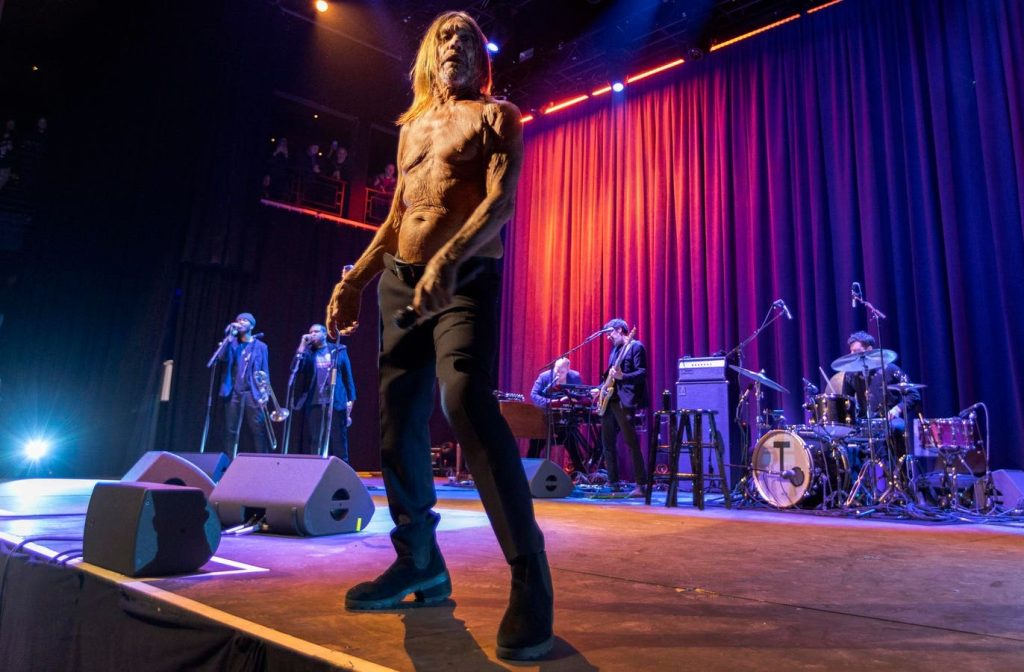
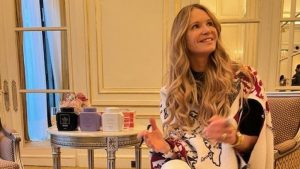
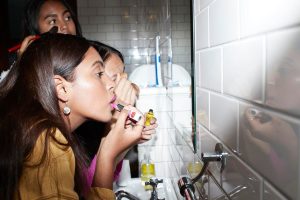
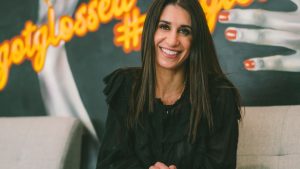
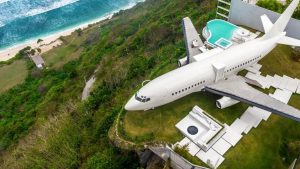
More Stories
Celebrity Makeup Artists Share Their ‘Holy Grail’ Luxury Cosmetics
The Best (And Most Outrageous) Gifts For Travelers
Smart Electric Vehicle Choice Gets Bigger: 2025 #3 Test Driven